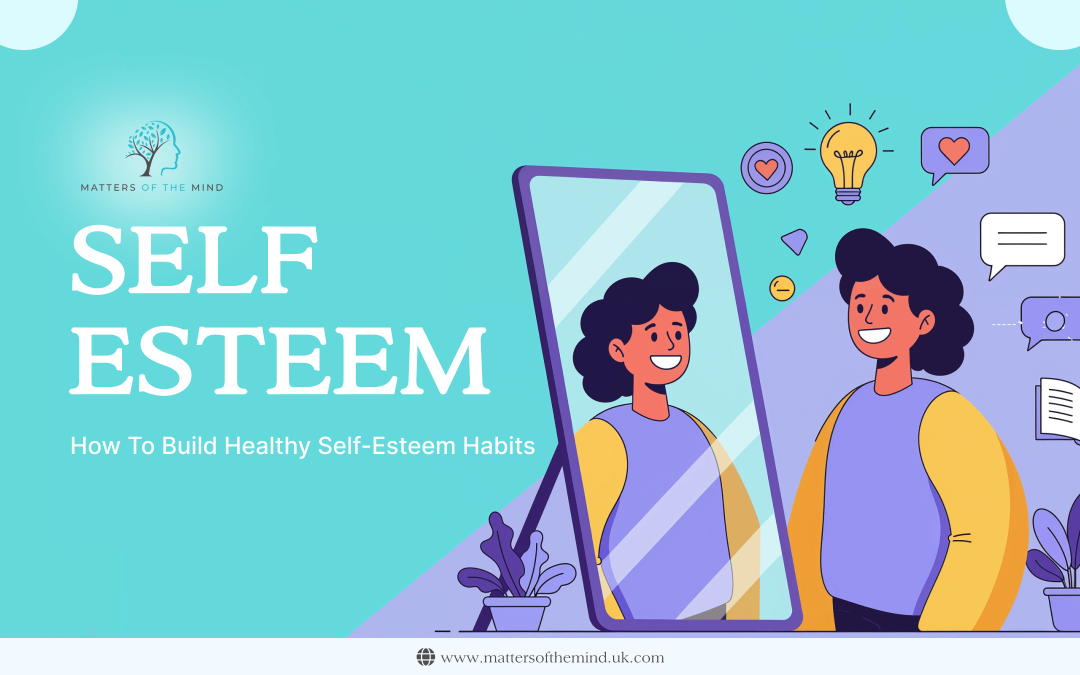Self-Esteem: More Than Just Confidence
| People with healthy self-esteem are more likely to: | On the other side, low self-esteem may manifest as: |
|---|---|
| Approach challenges with resilience | Persistent self-doubt |
| Set boundaries confidently | Fear of judgment or failure |
| Accept praise without discomfort | People-pleasing tendencies |
| Navigate criticism without crumbling | Difficulty accepting love or recognition |
What Shapes Our Self-Esteem?
- Childhood experiences (how we were treated)
- Relationship and social feedback
- Cultural and social expectations
- Inner stories (the things we tell ourselves about who we are)
7 Practical Habits to Build Healthy Self-Esteem

1. Spend time with yourself
2. Celebrate small wins
3. Set clear boundaries
4. Surround yourself with the right people
5. Try new things
6. Prioritise self-care
7. Practice self-acceptance
Final Thoughts
Self-esteem is a crucial element that nurtures our growth and rebuilds our confidence. It’s not something that we are born with, rather, it is shaped by our experiences and the habits we choose daily. Smallest step towards caring for yourself, setting a boundary, or recognising your worth matters. Over time, those steps add up to a deeper sense of confidence and self-respect.
Be patient with yourself. Speak to yourself the way you would to someone you love and remember:
About Matters of the Mind
Led by Dr. Kavita Deepak-Knights, Matters of the Mind offers compassionate, personalised therapy to support emotional well-being. Dr Kavita specialises in CBT, ACT, and other psychological therapies, helping individuals overcome low self-esteem, anxiety, depression, trauma, and other mental health challenges.

